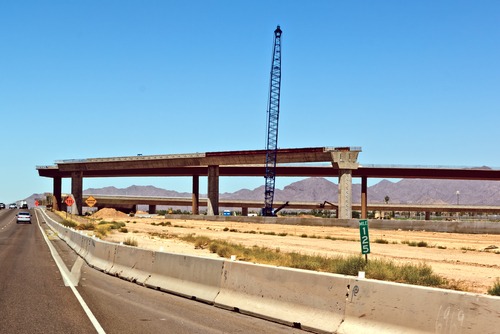
U.S. Sens. Rob Portman (R-OH) and Mark Kelly (D-AZ) introduced legislation Tuesday that would make federal transportation projects more sustainable, efficient, and cost-effective.
The Rebuilding Our Communities by Keeping Aggregates Sustainable (ROCK) Act would also advance the use of locally sourced aggregate resources, like sand, stone, and gravel. A companion bill was introduced in the House by U.S. Reps. Troy Balderson (R-OH) and Greg Stanton (D-AZ).
The legislation would direct the U.S. Department of Transportation (DOT) to convene a working group to study the use of aggregate resources in federal transportation projects. Currently, federal projects are not required to identify local sources of aggregates when beginning a construction project, making the projects less environmentally friendly and more costly.
“Aggregates – stone, sand, gravel – are the building blocks of every new home, building, road, bridge, and other public works project,” Portman said. “Over the past few decades, aggregates have increasingly gone from being locally-sourced to being hauled long distances, resulting in increased construction costs and inefficient project delivery. This bipartisan legislation would bring together federal, state, and local stakeholders to determine the best way to source aggregates around the country to reduce costs and emissions while improving project development and delivery. I encourage my Senate colleagues to support this bill as we look to address our nation’s infrastructure needs.”
The working group will study the use of aggregate resources in federally funded transportation and construction projects, as well as how the proximity of aggregate resources impact the environment and a project’s cost; how state, tribal, and local transportation and planning agencies consider aggregates when developing projects; and what measures the federal government, state, tribal and local transportation, and planning agencies can take to preserve aggregate resources for future development.
“To support Arizona’s economy and continued growth, we have to keep making investments in modernizing our infrastructure. Arizona roads, bridges, and transit projects should be built using sand, stone, and gravel from Arizona,” Kelly said. “Advancing how we use locally-sourced materials will keep more infrastructure dollars in local economies while also helping projects move more quickly. The ROCKS Act builds on a model created in Arizona and is an important first step in shaping federal building practices to ensure that building materials are sourced in a cost-effective and sustainable way.”
The legislation is supported by Ohio Aggregates & Industrial Minerals Association and the National Stone, Sand and Gravel Association.